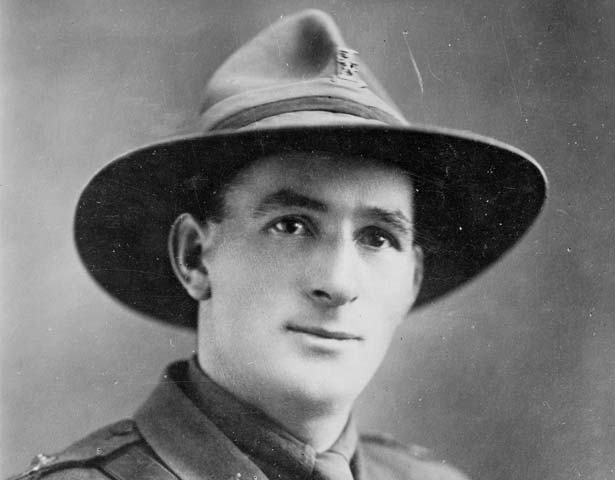
Born on 2 April 1891 in Slamannan, Samuel Frickleton came from a large Scottish coalmining family. He was one of 11 children of Elizabeth and Samuel Freckleton (their surname was originally spelt with an ‘e’), who had both been born in Lanarkshire in the 1850s. By 1911 seven Frickleton boys were working in the mines alongside their father.
Samuel’s elder brother William emigrated to New Zealand in February 1912 to work in the Blackball mine, near Greymouth. He evidently sent back positive accounts of the job prospects. When Samuel senior died soon afterwards, the four younger boys and their mother set off for a new life in New Zealand. By the middle of 1913 five Frickleton brothers (William, Samuel, James, Thomas and Herbert) were working at Blackball. A close-knit and unruly family, keen on boxing, they are remembered in Blackball as the ‘Fighting Frickletons’.
All five Frickleton brothers volunteered to serve with the New Zealand army during the First World War. William, James and Samuel enlisted together in the Canterbury battalion on 12 February 1915, and sailed for Egypt as part of the 5th Reinforcements. Soon after arrival Samuel became seriously ill from a lung infection, diagnosed as tuberculosis. He was sent home and discharged as medically unfit in November 1915. After recuperating at a sanatorium near Dunedin he re-enlisted in April 1916, and was sent to France with the 3rd Battalion of the New Zealand Rifle Brigade.
Lance Corporal Samuel Frickleton took part in the attack on Messines, Belgium, on 7 June 1917. When his unit was pinned down by heavy machine-gun fire, he singlehandedly attacked two machine-gun posts, killing their crews. He was wounded in the hip and later gassed. For these acts of extreme gallantry, he was awarded the Victoria Cross.
Immediately promoted to sergeant, Samuel was later sent to an Officer Cadet Training Unit in Cambridge. He graduated as a 2nd lieutenant in March 1918. During this time he entered a boxing competition, and found that his weight had dropped from 12 to 10 stone. Although he successfully fought in the boxing contest, subsequent medical examination showed that his lungs were badly damaged.
His brother William served at Gallipoli and in France, where he was wounded; he died in late 1916. James, Herbert and Thomas Frickleton were all wounded in different battles. All four surviving Frickleton brothers were returned to New Zealand as medically unfit. Samuel was given a hero’s welcome on arrival in June 1918, with large civic receptions in the main cities and on the West Coast.
He was commissioned into the New Zealand Staff Corps in October 1919, and served on the West Coast and in Christchurch and Napier. He married Valeska Gembitsky in 1922, and they had one son. His health problems recurred, and he retired from the army medically unfit in 1927. Later he joined the territorial force, and was promoted to captain in 1934. When the Second World War broke out he again volunteered for overseas service, but was rejected because of his medical history.
After leaving the army, Samuel Frickleton worked as a clerk for the Colonial Motor Company, and spent some time farming at Waikanae. He was always interested in sport, especially golf in later years. Although lung problems (later diagnosed as chronic asthma) continued to trouble him, he lived until he was 80. He died in September 1971, and is buried in the Taita Servicemen’s Cemetery.
His medals and some other items are held at the Queen Elizabeth Army Museum, Waiouru. He is commemorated by memorials at Messines and at his birthplace, Slamannan in Scotland. In 2010 the Burnam Military Camp in Christchurch renamed its infantary battalion barracks the Frickleton VC Lines in his honour.
By Simon Nathan
Further information:
- Official portrait of Samuel Frickleton VC, painted by Mrs J.A. Tripe. He is wearing the uniform of lieutenant.
- Interview with Mrs Frickleton in Grey River Argus on August 10 1917, soon after she heard that her son had been awarded a Victoria Cross
- ‘Our VC Hero.’ An account of the arrival of Sam Frickleton in Greymouth from the Grey River Argus on 19 June 1918
How to cite this page
'Samuel Frickleton', URL: https://nzhistory.govt.nz/people/samuel-frickleton, (Ministry for Culture and Heritage), updated 21-Mar-2023


Community contributions